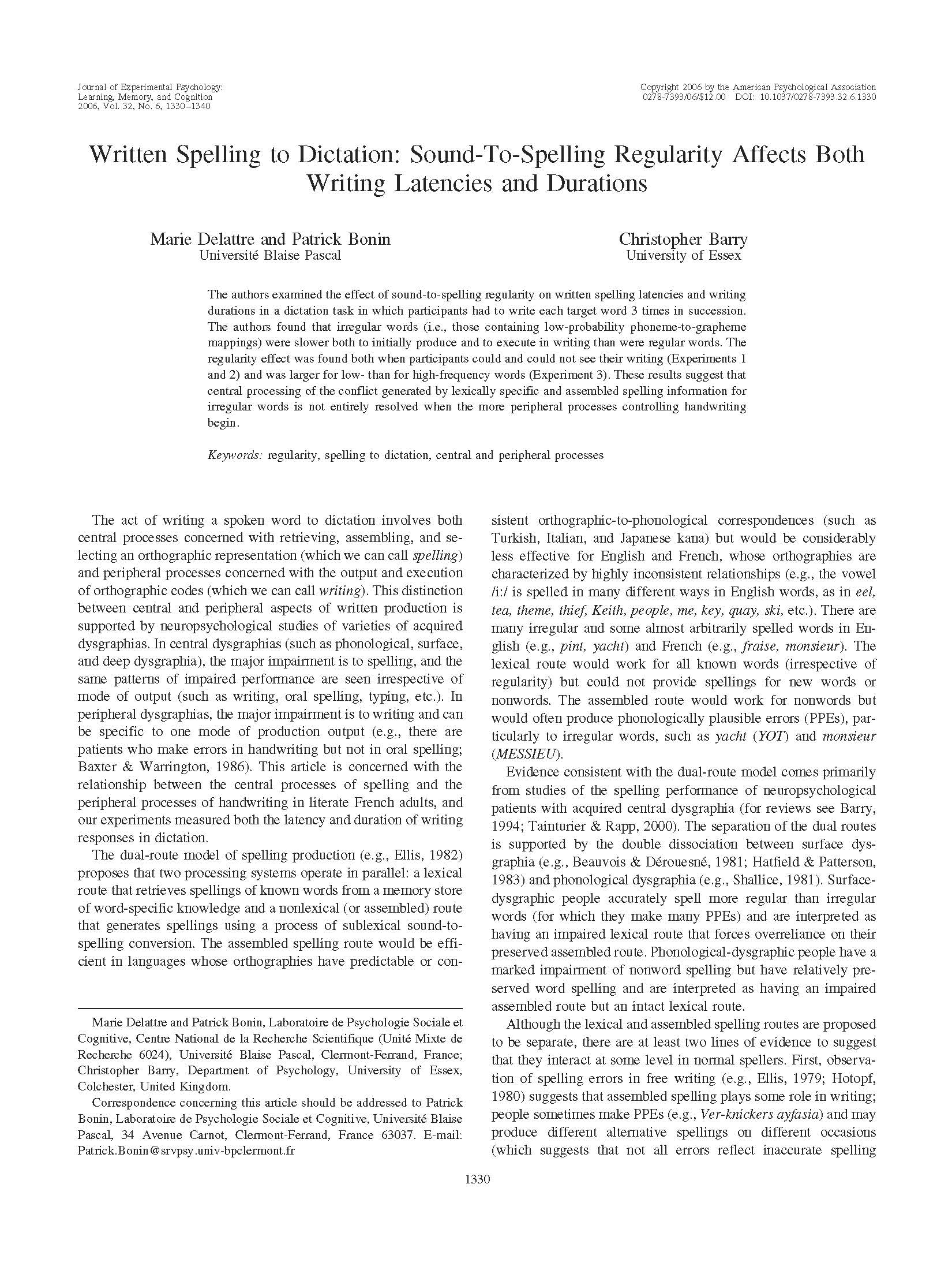The authors examined the effect of sound-to-spelling regularity on written spelling latencies and writing durations in a dictation task in which participants had to write each target word 3 times in succession. The authors found that irregular words (i.e., those containing low-probability phoneme-to-grapheme mappings) were slower both to initially produce and to execute in writing than were regular words. The regularity effect was found both when participants could and could not see their writing (Experiments 1 and 2) and was larger for low- than for high-frequency words (Experiment 3). These results suggest that central processing of the conflict generated by lexically specific and assembled spelling information for irregular words is not entirely resolved when the more peripheral processes controlling handwriting begin.
Written spelling to dictation: Sound-to-spelling regularity affects both writing latencies and durations
